Long Covid: Will I ever get better?
Posted on July 25th, 2021
By Lucy Adams BBC Panorama
I am 44 years old and in my mind I’m a journalist, a mother, a wife, a cyclist, a mountain climber, a wild swimmer and an adventurer – just like I was 16 months ago.
But in my body, I’m like someone twice my age.
Most days I wake up in pain and go to bed with pain. I have vertigo, migraines and blurred vision. My joints feel like brittle bone grating on metal.
I’m one of 385,000 people in the UK who have been suffering “long Covid” for more than 12 months – and that number is growing.
For me, it all began in March 2020 when I got Covid-19.
At that time, there were no community tests but I had the full panoply of symptoms.
I was very unwell and contacted Scotland’s NHS 24 helpline twice because I was really struggling to breathe. Each time I was told that unless my lips were blue I should stay home and isolate.
My seven-year-old daughter was unwell too. She seemed to recover but then became plagued by fatigue and breathlessness.
We didn’t know how to help her and the doctors didn’t seem to know either. We were told to give it time. So we did.
It has been 16 months so far.
A new disease

Long Covid is still new and scientists are trying to work out what causes it in certain people and not others – and how to get rid of it.
There are multiple theories.
Some believe the symptoms are caused by live virus reactivating in the body.
Others believe it may be an autoimmune problem – which means the body is attacking itself.
A further theory is that it may be caused by an underactive immune system or one sent into freefall by the original virus.
Doctors have tried splitting it into different syndromes including post-intensive-care syndrome and post-viral-fatigue syndrome.
Or dividing it based on how ill patients were initially.
But some of those who were in hospital have recovered and some of those who stayed in the community have discovered they have serious underlying problems including organ damage.
We know that women are more likely to be affected than men and that many of the hundreds of thousands suffering the condition in the UK were previously young, fit and healthy.
The latest figures from the ONS show there are 962,000 people in the UK with multiple symptoms four weeks after initial infection.
But what I really want to know is what it is and how to make it go away.
Clinging on with my fingertips
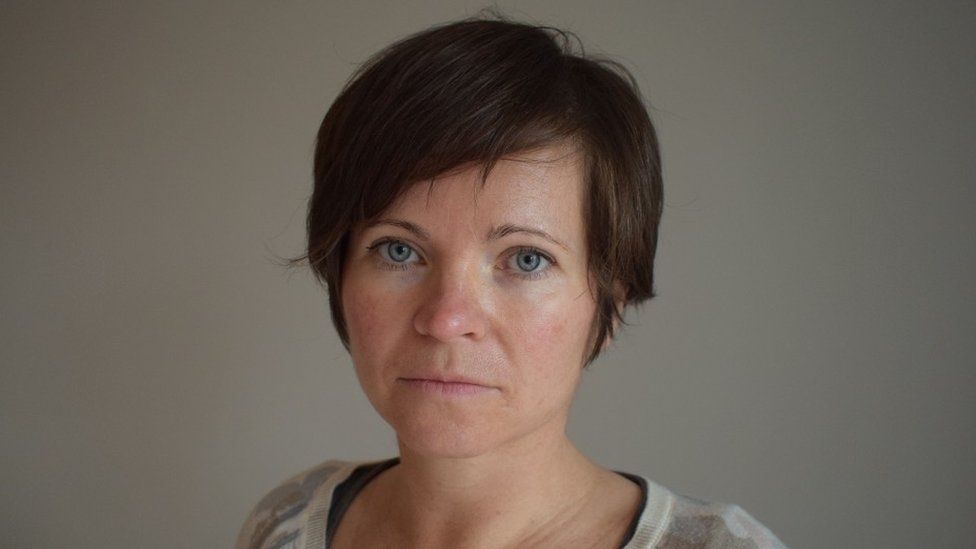
Eight months ago I wrote about how long Covid had left me exhausted. Back in November I was having good days and bad days. That developed into good weeks and bad weeks. I was just surviving. I had a sense that I was clinging on with my fingertips.
I regularly lay in a dark room by myself because I couldn’t cope with the noise of family life and the sense that light – any light – was too bright.
The dark room which should have been a haven began to feel like a prison, a place I couldn’t escape.
The bed which should have felt warm and comfortable felt like a ship lurching in a rough sea.
In my inability to explain that sense of fear and isolation and loneliness I became convinced I would never be able to work again.
I feared that I would end up unable to look after my children or find another job or home or place in society. Being ill became my life.
Offers of support
After I wrote the piece for the BBC news website in November, hundreds of people got in touch to offer support. People from Australia, France, North America and the Netherlands.
They wrote messages of comfort and condolence and empathy. Many asked questions on behalf of relatives and friends who were also suffering.
I struggled to get back to everyone who got in touch and my answers to questions felt inadequate. I’m not a medical expert. I didn’t have the answers to their questions. And I couldn’t even say I was better myself.
Several people got in touch to tell me I would never get better. That I needed to accept my position was permanent.
I couldn’t do that, so I tried lots of different measures instead: restricted diets, cold water immersion, acupuncture, homeopathy. Bizarre supplements.
I started going for short walks – mindful that I often needed to stop and sit on the pavement. Sometimes even walking around the block I couldn’t be sure I would have the energy to make it home.
A tiny incline would leave me breathless when a year before I’d been climbing mountains.
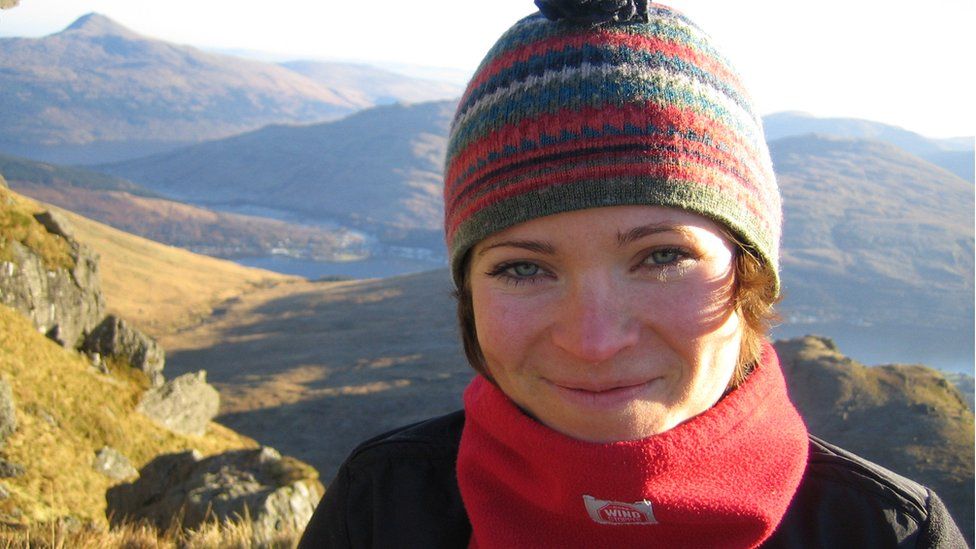
I feared the judgement of others who could see me going out for a walk and would assume I was recovered.
What they couldn’t see was the payback afterwards.
The fact I would have to go straight to bed or would most likely be punished with a blinding headache, fever or loss of vision later in the day.
I struggled with the idea of accepting help but realised I needed it. I struggled to cook or clean or load the dishwasher. Our neighbours started cooking for us twice a week and would pass delicious homemade meals over the wall every Monday and Thursday. Friends offered to look after the children.
I realised after almost a year of being off sick that I had not once lain on the sofa and watched a whole film during the day.
Not because I don’t have a telly but because most days the sofa seemed too far away and I didn’t have the energy to watch a whole film.
Things that helped me
I tried several times in the evening sitting with my husband but usually the tremors in my hands would be too bad or the headache or vision problems would interfere too much.
I found a number of things that really helped me.
These things might not help other people but to me they have become a way of getting through the day.
The first is yoga. A yoga teacher I know was training to be a yoga therapist and I became her first client with long Covid.
It helped with the breathlessness but also with coping with the uncertainty of not knowing when I would get better.
I would also say that acupuncture appear to help me deal with the symptoms.
I have given up alcohol and caffeine and I’ve also been doing singing lessons to help with the breathing.
Believing you will get better is an important part of the recovery but it is not easy to stay positive.
Integrative care
My GP referred me to the Centre for Integrative Care in Glasgow and Dr Bridie O’Dowd, who specialises in helping people with chronic ill health.
Until my appointment with her in December the only advice I had received was to rest. But that is surprisingly hard to do.
I know now that if you just rest and stop moving the body deconditions – which in turn causes other problems.
Dr O’Dowd explained that each day I should try to do three things I enjoy – each of which should last no longer than 20-30 minutes, as well as three tasks such as unloading the dishwasher for a similar amount of time.
It is deeply frustrating when your goal is to finish folding the laundry or to make the dinner and realise you can’t complete the task within the allotted time.
But I found it the most practical way of managing the symptoms.
It means you feel you have achieved a little and lived a little.
Through the centre I did an eight-week mindfulness course – something that in the past would have sounded far too fluffy for me.
And I started seeing a therapist. Psychologically not knowing when or if you will get better is really hard.
I am now part of a pilot in Glasgow, run by Dr O’Dowd, to support a small number of people with Long Covid with practical advice on sleep and diet, appointments with psychologists and physiotherapists and a course on mindfulness.
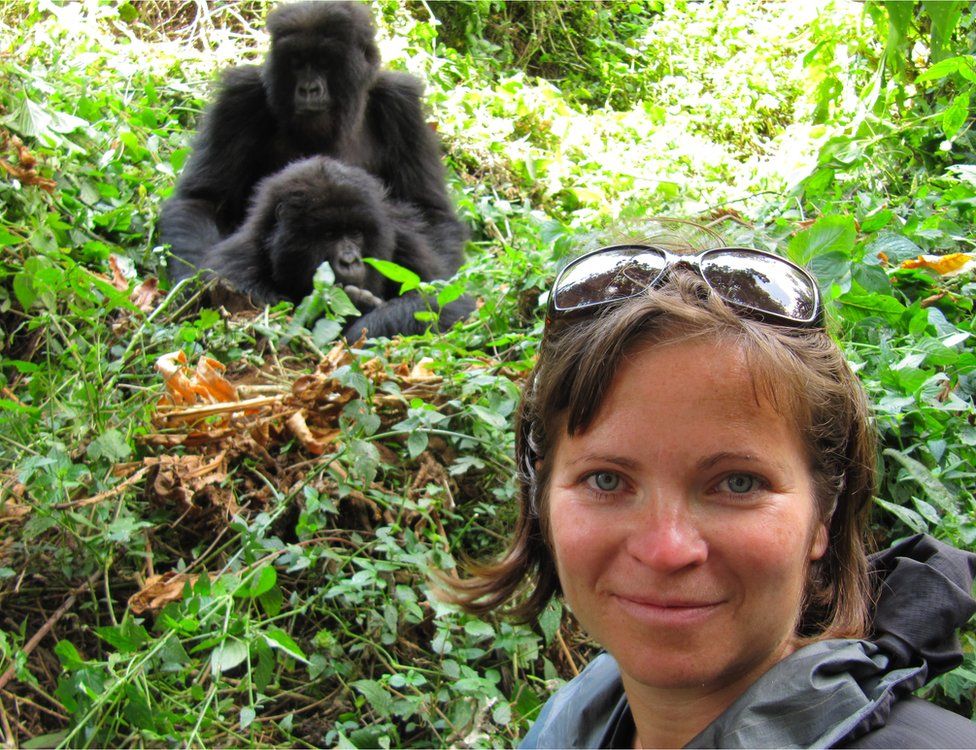
Eureka moment
The best email I received after the earlier article was from Paul Garner, professor of infectious diseases at Liverpool School of Tropical Medicine.
We had contracted Covid around the same time and his articles in the BMJ describing his symptoms had been a eureka moment for me because until then no-one could understand what was wrong with me.
We had been in touch for months. He was supportive and helpful.
In November he emailed to say he was better. If he could get better I figured that meant I could too.
Just hearing that from him gave me a massive boost. I tried to focus on the ways the symptoms were reducing. And started to think about the hills I would climb once recovered.
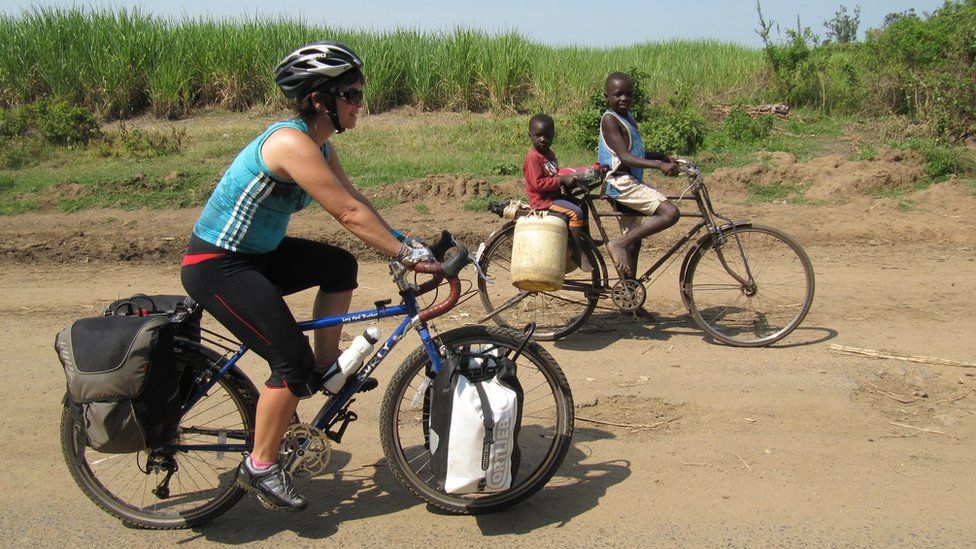
My daughter went back to school. The staff were very supportive. She struggled with the stairs and the length of the school day so she was given time to rest in the teacher’s office.
Sport had been her favourite pastime but she tired easily and spent PE resting.
Our weekends used to be spent on family cycle rides but she and I spent time resting or reading books instead.
Back to work
By Christmas my daughter seemed much better and in January of this year I started to feel a little stronger too.
The migraines were less frequent – once every fortnight rather than every two days. The vertigo was still present most of the time but the joint pain eased a little.
I could get through a conversation without sounding too breathless.
I went through an occupational health assessment and agreed to a phased return to work. The first week would mean four hours work spread across a week. It sounds so meagre, yet I was terrified.
I had not sat at a computer for 10 months.
Brain fog had left me struggling for words, struggling to remember things.
I agreed to work on a Panorama about long Covid as part of the phased return.
I managed the first week and felt delighted with myself. The next day I woke up with a fever and a terrible pain in my kidneys.
I thought it was a reaction to my increased activity but then started to feel exactly as I had 11 months previously.
I went for a test and that evening I got an email saying I had Covid again.
I had been nowhere – not even to the local shops but my children were in school. A pupil and a member of staff were off with Covid. It felt brutally unfair.
The second time was not as severe. I had all the same symptoms but the fever was not as high, the breathlessness not as overwhelming.
I spent 10 days in bed and then started to feel a little better. I was terrified that the second bout would mean another 10 months of being unwell but used yoga and mindfulness. I knew I couldn’t think myself better but equally knew that panicking would make my symptoms worse.
Breathing pattern disorder
My daughter’s symptoms returned too. She was pale and exhausted and had Covid toes – her feet purple and itchy. Her breathlessness worsened and she was admitted to hospital for scheduled tests.
I felt utterly helpless. Remarkably she loved the hospital food and her “sleepover” on the ward. Tests showed problems with the way she is breathing but she has daily exercises to try to improve it and it should be reversible.
Many people with long Covid have breathing pattern disorder or hyperventilation syndrome. It is one of the things physiotherapists can help to change.
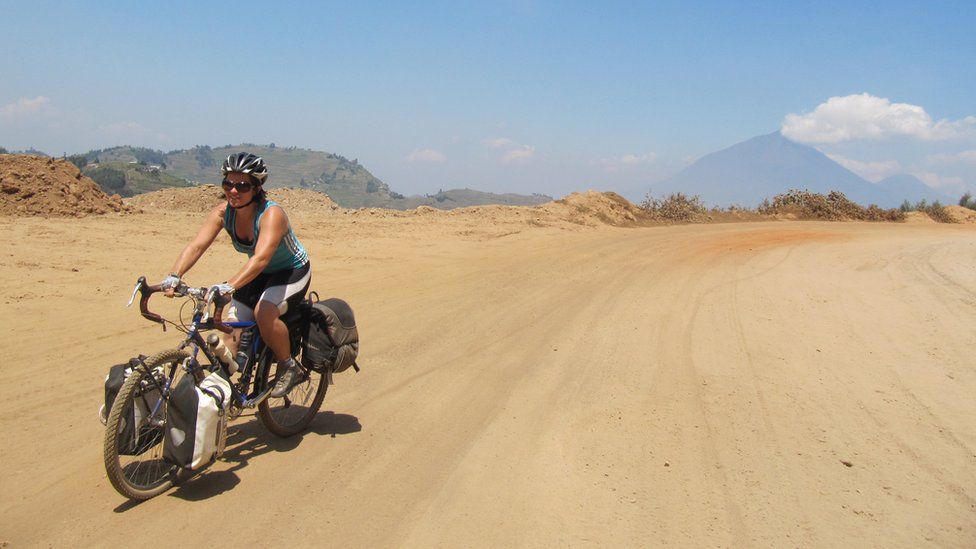
But it wasn’t until April this year when I met neuropsychiatrist Prof Alan Carson at Edinburgh University that I understood that I had it too.
The good news is that it is reversible and explains the sensation of fizzing I’ve had in my veins for months which he says is down to excessive carbon dioxide changing the PH levels in my blood.
The bad news is that it took more than a year to get it diagnosed and I am still waiting for the respiratory tests he has referred me for.
The NHS is busy
One of the downsides of being ill in a pandemic is that it makes it particularly hard to get medical help.
The NHS is understandably extremely busy. Not only that but the problem with having a new disease is that no-one knows quite how to treat it.
My GP has been helpful but she is no expert in long Covid.
She sent me for basic tests including a chest X-ray and an ECG but they came back clear.
This was reassuring in a way but also unhelpful because it leaves you with no explanation about what is wrong or how to fix it.
So I feel I’ve been left to my own devices.
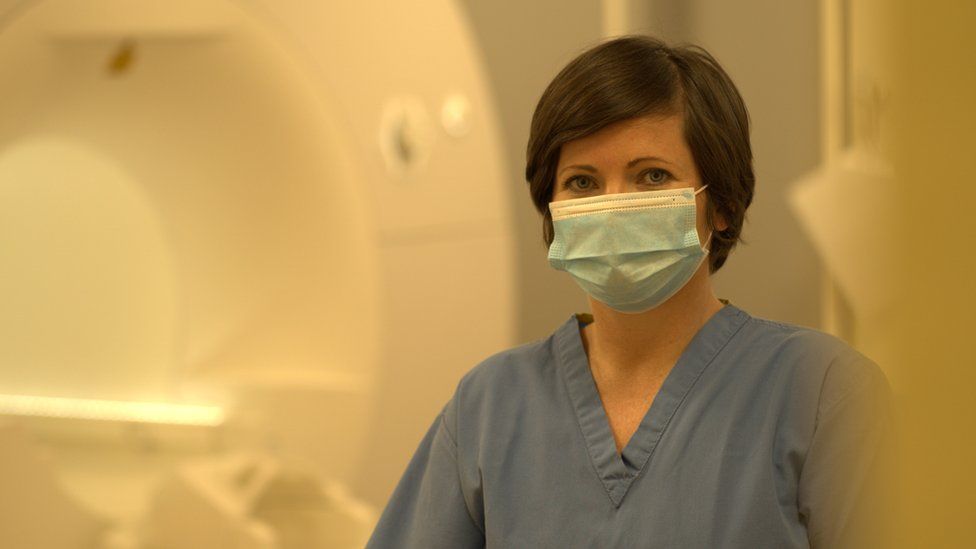
As part of that I looked into different research. At Edinburgh University, Prof Carson is doing an in-depth study into the impact on the brain of long Covid. I feel fortunate that I was allowed to take part. It involves hours of clinical tests and questions and an MRI scan of the brain.
A high percentage of people with long Covid complain of brain fog – for me it has meant problems with memory and concentration and struggling to find the right words.
On social media many patients have expressed their dismay at being told the symptoms are purely a result of anxiety or “all in your head”.
But the scientists and the growing body of research on long Covid make clear it is a real problem not an imaginary one.
Prof Carson says that to suggest it is all in someone’s head implies that problems which do not have an obvious physical cause are in some way a lesser illness.
He says there is a “slightly unpleasant undercurrent” which suggests that if an illness is visible in your body it is real and worthy of concern.
“I find that very hard to tolerate,” he says.
“I kind of feel that if you’re in medicine and you need that biomarker to believe patient’s suffering is real or that they’re worthy in some way then I think you’re in the wrong game actually.”
Prof Carson says it is “ludicrous” to think of the body and head as somehow separate.
He says we need to understand that the brain is a “predictive organ that interacts with the world” – and he makes the point that it our brain is the only organ in the body capable of perceiving pain.
It is the brain that regulates body temperature and heart rate and the many other patterns of the body that seem to be to go awry with long Covid, he says.
And as with the virus itself, long Covid seems to affect different people in different ways.
Dementia sufferers
As part of the study Prof Carson has seen people with lung scarring and people whose brain scans show dementia and other people whose brain scans are clear and healthy but who are still suffering debilitating symptoms.
Unfortunately in a small number of cases they are seeing patients with dementia which seems to have been accelerated by Covid.
He says this is not new dementia cases but “bringing forward” by several years what was going to happen down the line.
His hypothesis is that for a small number of older patients the acute phase of the illness and in some cases “delirium” has advanced permanent damage.
For many other patients – including myself – he believes it is partly a breakdown in the way the brain and other parts of the body are communicating.
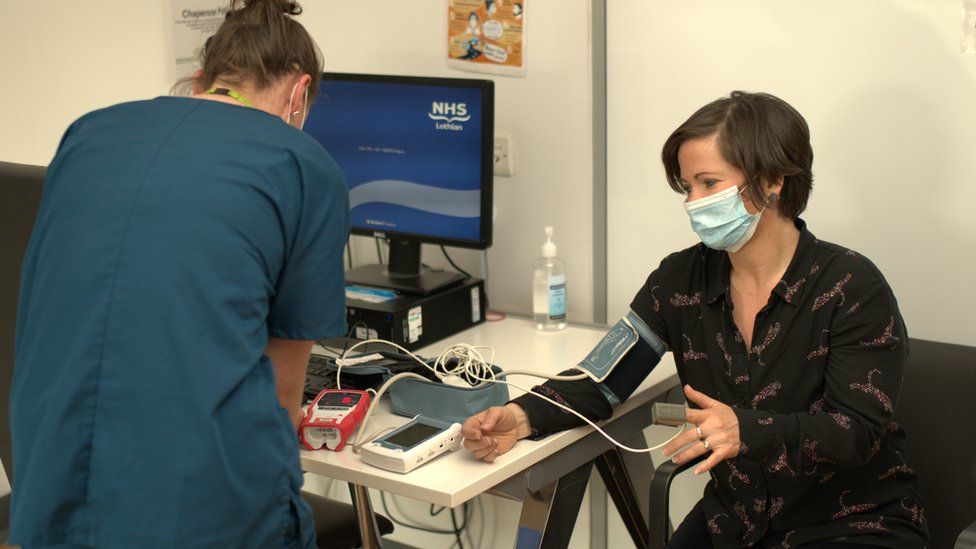
My brain scan came back clear.
Prof Carson confirms that I have breathing pattern dysfunction and explains that this means too much carbon dioxide is left in my system.
He says my vertigo is in fact persistent postural perception dizziness which should ease with time but requires me to keep moving. He says the yoga should help.
He refers me for further testing for my breathing and suggests physiotherapy but says what I have been doing so far in terms of yoga and mindfulness should help.
According to Prof Carson, my long Covid symptoms should be reversible.
He describes them as a typical “constellation” and explains that while my brain looks ok structurally on the scan there seems to be some problems in the way it is anticipating and monitoring what I do.
There has been improvement
Last year my energy was severely limited. I can do more now but there is still a cap. I still try to push through but every time I do my symptoms pull me up.
To some the symptoms might not sound too bad. Having a headache for a day is irritating but having a headache and joint pain for months is difficult to handle.
As are the constant worries about whether you’ll be able to work properly again, when you’ll be able to run in the park with your children or spin them above your head. Or when you will be able make them dinner without swaying with dizziness and feeling like you’ve cooked for 100 people not four.
It is July now. I can watch a whole film but only if I have not already done too many other things that day.
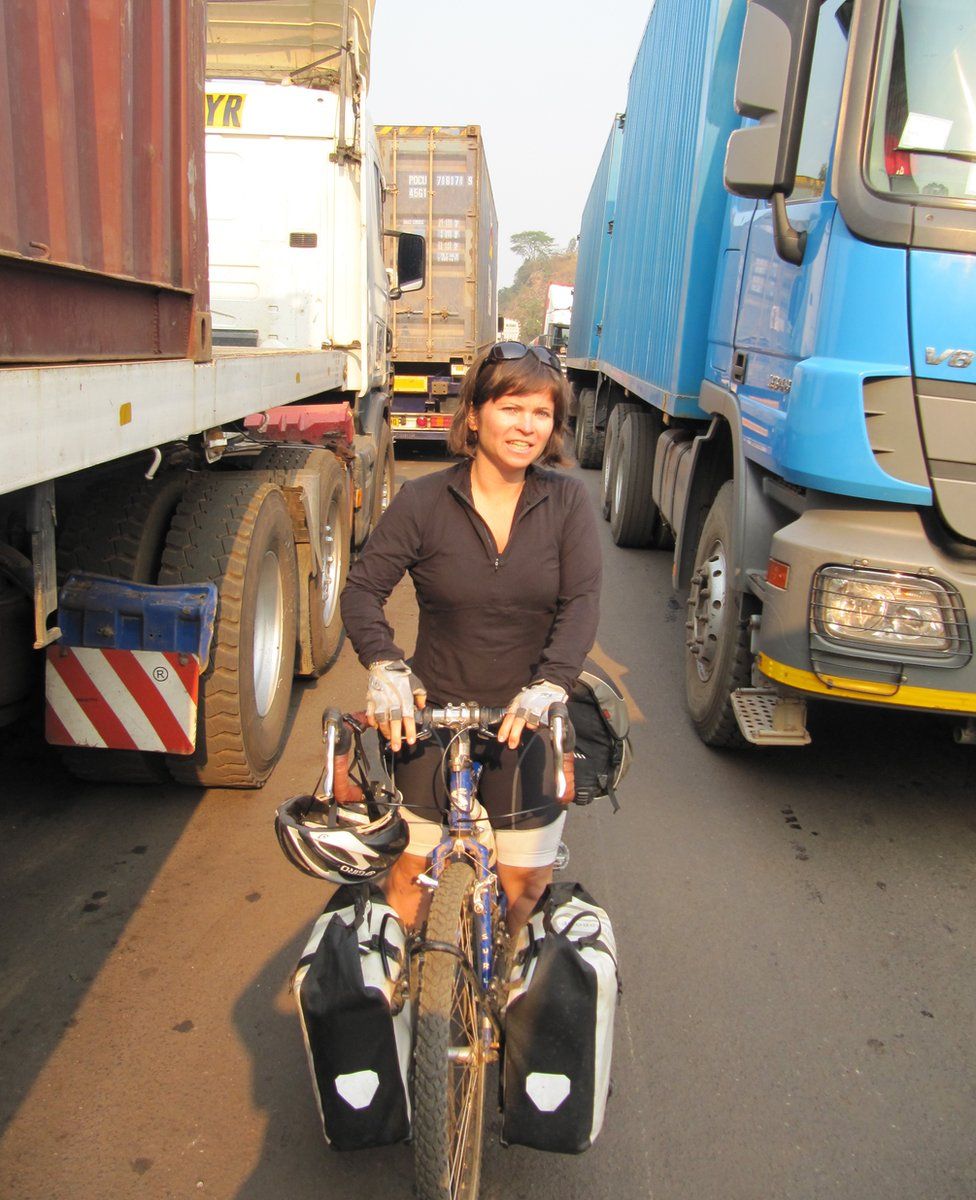
I can cycle a short distance on the flat and I’ve even been paddle boarding. I am planning a family holiday soon where I will try to swim in the sea but I still have to weigh up one thing against another.
I can either work or walk or play with my kids. I can’t do everything. And I still have to take breaks in between.
For me this is not normal. This is not yet a return to who I was prior to Covid. That is hard. The rest of the country is returning to normal but I feel a long way behind.
I’m fully vaccinated yet I’m nervous about getting Covid for a third time but perhaps more apprehensive that this slog of pain and fatigue will just rumble on.
Yet I know too that I need to hold on to the idea that many people have recovered from long Covid and that I will too.
I am much improved. When I wrote the article last autumn about being seven months in to long Covid, it took me months.
I wrote that whole piece while lying in bed, typing on my phone with one finger.
When I started writing this article earlier this year my hands were often shaking too much to type.
I can now sit up and work and have been out filming for Panorama.
If I was not significantly better I would not have considered saying yes to making the documentary.
But I have to admit it has been hard working again and uncomfortable putting myself and my family into the centre of it.
I much prefer writing other people’s stories.
Hearing the stories of so many other patients has been moving and interviewing some of the leading scientists researching long Covid has been fascinating.
There is a huge amount of research going on across the UK – and the world – to investigate this new disease but so far there are far more questions than answers – about what causes it, how to diagnose it and how to treat it.
What has become increasingly obvious to me is that it is almost impossible to get through this on your own.
People need the help of friends and families. But also the right tests and medical support.
Long Covid affects different people in different ways.
The experts we speak to in the programme say we need to make sure we are getting people the right treatment and tests so we know who has underlying heart conditions or organ damage and who has breathing pattern dysfunction and requires specialist physiotherapy.
I am gradually recovering. I can do more now and the payback is not as bad as it was. But I still feel a long way from where I was and who I was before I got ill.
I’m pretty determined to hold on to the idea of myself as a bold adventurer, a mother, a wife, a journalist. Even if for now the mountains are just in my mind.